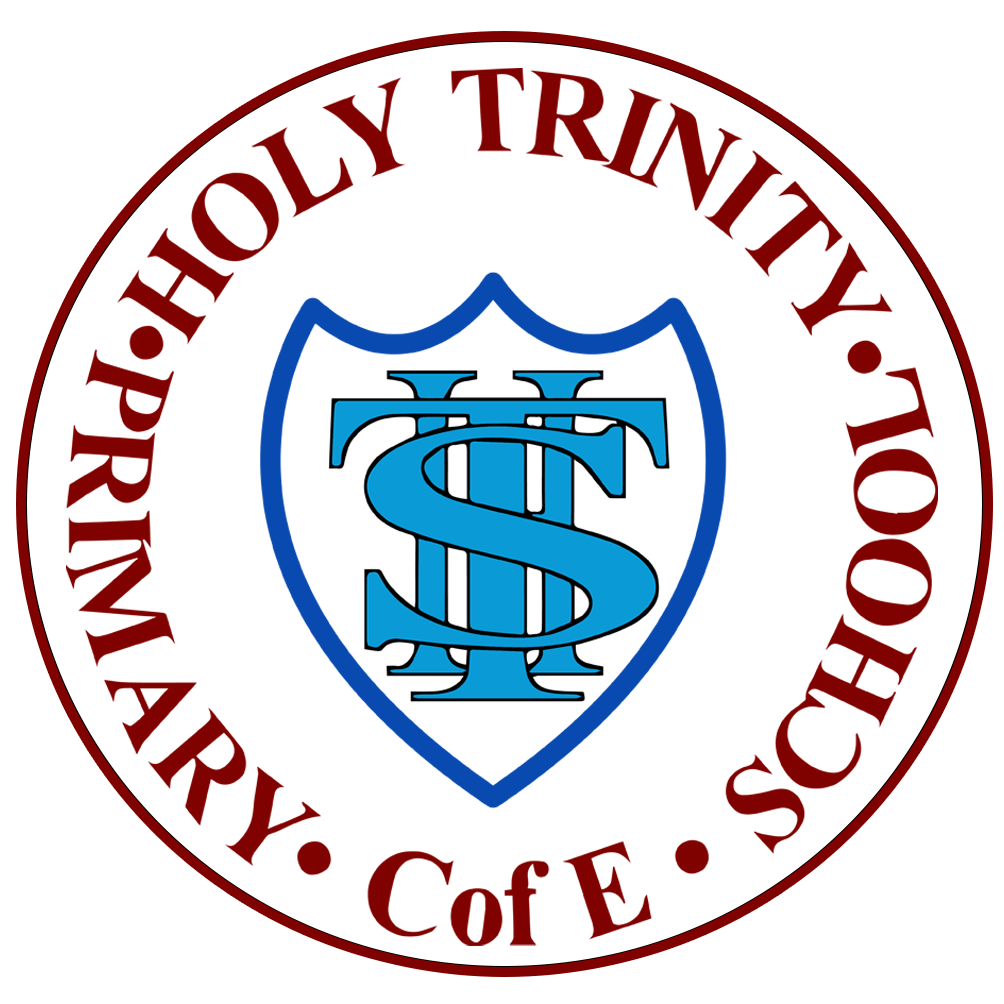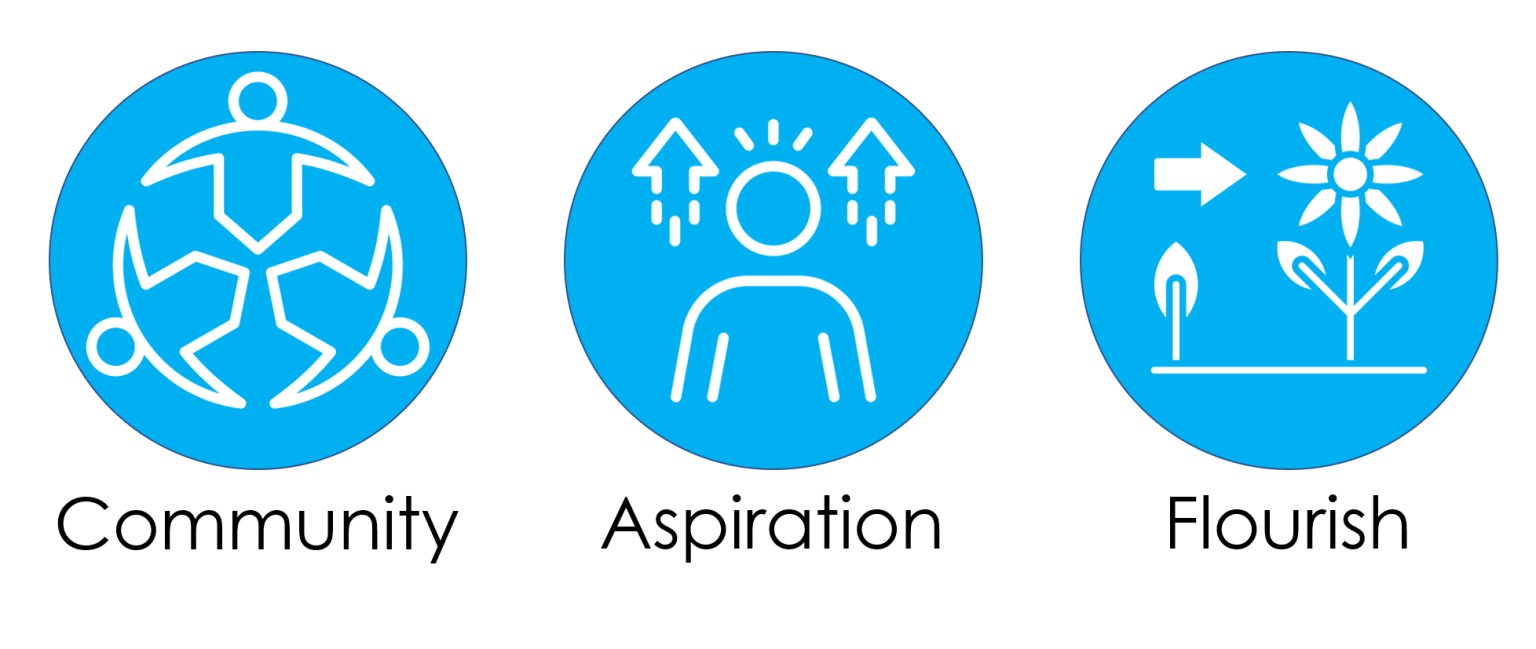Our Curriculum at Holy Trinity
At Holy Trinity, we offer an ambitious curriculum for all of our pupils that is underpinned by our school vision – 'A church school community aspiring for all to live life to th full' – which is at the heart of everything we do. As such, we aim to create a learning community built around our school values that enables all of our pupils to flourish academically, socially and spiritually. Through evidence-informed practices, our highly inclusive and nurturing ethos, we aspire to enrich the lives of all of our pupils, helping them to become citizens of the future.
Our curriculum is designed around a number of themes which encompass the key skills and aspirations we want our children to experience and develop during their time with us. These 'key drivers' underpin the learning and experiences we undertake in all areas of school life and enrich our curriculum offer.
Our three drivers of community, aspiration and flourish have been selected through consultation with all stakeholders, who have identified the specific and unique needs of the children at Holy Trinity.
Community
Our curriculum has also been shaped by our community driver. When designing our curriculum, we believed it was vital that our children develop a secure understanding of their local and wider community, and how they fit into these as individuals. We want our children to know about their local history and town, in order to be successful members of the community as they grow older. Alongside our children’s understanding of their local and wider community, we aspire to educate our children about the wider global issues we currently face. Our curriculum ensures our children are successful members in their local community, but we also believe that they should develop as global citizens, individuals who one day will become confident, agents of change.
Aspiration
Aspiration is the hope or ambition to achieve something. We want our curriculum to be aspirational for all children in terms of what they can achieve and the young people they can become. We know that aspiration is the basis for our choices, dreams and goals; both personal and academic. We believe that the development of aspirations encourages children to take pride in themselves and be the very best they can be. It is essential that our children are made aware of the range of possibilities that are available to them during their time with us, and beyond. We therefore seek to understand, recognise and promote the skills, qualities and capabilities of each child through our curriculum.
Flourish
A flourishing education system places children instinctively at the heart of decision-making an leadership thinking at all levels. We believe that flourishing is not an individual pursuit,but a collective endeavour underpinned by a cohesive community. As a result, all decisions about our curriculum are deliberately designed around the flourishing of children. Although measurable academic excellence is central to flouishing, it is not the full story - the moral, spiritual, cultural and social development of pupils offers a broader, more expansive vision of what education at Holy trinity looks like.
Curriculum Implementation
To ensure effective delivery of the curriculum, the statutory requirements for each subject within a key stage are identified and cross-curricular links are harnessed to provide cohesion within units of learning. This is outlined in our curriculum maps which can be found in the individual subject pages.
Progression is achieved by identifying the skills and knowledge that children need over time; these are outlined in our progression grids for each subject which contain carefully chosen components crucial for subsequent learning.
The curriculum at Holy Trinity draws on the knowledge of successful evidence-informed strategies and draws upon our Principles for Effective Teaching and Learning. Staff regularly review educational research (such as EEF research, WALKTHRUs and Rosenshine’s Principles) to inform curriculum pedagogy.
Curriculum planning enables learners to make connections and interconnections in order to ensure that knowledge (substantive) and skills (disciplinary) are learned progressively to reach agreed end points. Lessons enabling retrieval practice (reviewing previously taught objectives), formative assessment, metacognition and opportunities for teachers/support staff to address misconceptions, means that learning is moved from the short-term memory and embedded into long term memory so that learners know more, remember more and do more.
Curriculum Impact
School evaluates how well our children are learning the content outlined in the curriculum through:
- School progress data which is analysed by SLT, middle and subject leaders and class teachers
- Book scrutiny
- Lesson observation
- Pupil/parent voice
The curriculum that we offer is broad and balanced and aims to not overload pupils with information but enables them to know more and remember more through connecting to prior learning. The impact of the curriculum is that children are well-motivated and engaged in their education with a growing knowledge base which prepares them for effective transition for their next stage in learning and equips them for life.
The curriculum is continuously under review to ensure we provide the best offer for our children and planning grids will be updated as they are developed.
Our most recent curriculum map can be found below, outlining how we intend to cover the national curriculum for foundation subjects.
NB: As some changes have been made to the curriculum mid-year, some units in some subjects may have been taught in a different order.

